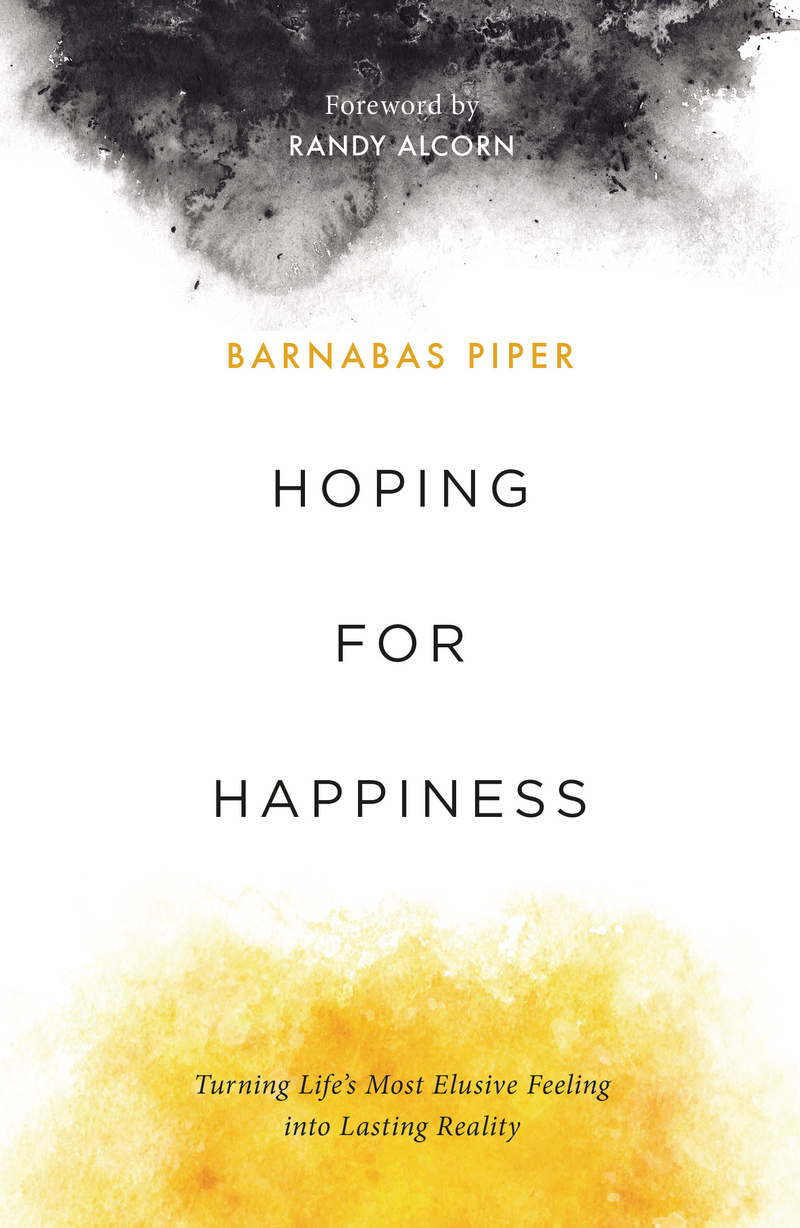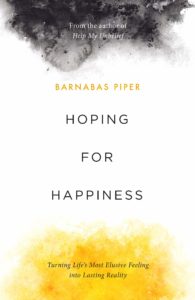Is happiness possible?
 When I began writing this book, the answer to that question seemed like a fairly obvious “yes.” I could look up from my laptop as I wrote in coffee shops and see a world full of happy people. Across the table from me a young couple would talk softly and giggle occasionally. They seemed happy. Outside, gaggles of bachelorette partygoers moseyed along the downtown Nashville streets, combining enthusiastic off-key warbling with copious adult-beverage consumption. They seemed happy. My daughters planned sleepovers with friends, complete with movies, junk food, crafts, and very little of the aforementioned sleep. They were so happy. At the end of each week we’d head to church to worship and be refreshed and encouraged. It was a happy time.
When I began writing this book, the answer to that question seemed like a fairly obvious “yes.” I could look up from my laptop as I wrote in coffee shops and see a world full of happy people. Across the table from me a young couple would talk softly and giggle occasionally. They seemed happy. Outside, gaggles of bachelorette partygoers moseyed along the downtown Nashville streets, combining enthusiastic off-key warbling with copious adult-beverage consumption. They seemed happy. My daughters planned sleepovers with friends, complete with movies, junk food, crafts, and very little of the aforementioned sleep. They were so happy. At the end of each week we’d head to church to worship and be refreshed and encouraged. It was a happy time.
Shortly after I turned the manuscript in, however, the COVID-19 pandemic swept the world, and all that disappeared in the space of weeks. Thousands upon thousands of people died, and the workings of entire nations ground to a halt. It was terrifying and overwhelming. Never in our collective lifetime had we faced such uncertainty. Happiness was lost for some, called into question by many, and redefined for others.
In the aftermath of a global pandemic, the answer to the question “Is happiness possible?” might sound a little different. When I set out to write this book, I thought I might have to persuade some readers to reconsider your definition of happiness—to rattle some cages and show how fleeting our sources of happiness are—before offering hope and direction. Now few of us need to be persuaded that so many of the things we look to for happiness are actually rather fragile. But more than ever, we need to know what true happiness is and how to find a version of it that cannot be shaken.
So let me begin by saying this: YES, happiness is possible. That is what this book is about—to help you find your way to a true, lasting, grounded sense of happiness. But it also seeks to answer some of those other questions that have bubbled to the surface: the ones we probably should have been asking before our worlds were rattled and that we can hardly ignore any longer.
If happiness is so attainable, why are our lives marked by such a desperate search for it? Why are we so often unsatisfied, grasping at what is next, groping for what is better, and racing after what is new and undiscovered? Why is it that even while we are in the midst of pleasure we are thinking of the next pleasure? It’s an exhausting way to live.
But let me reassure you: this book is not going to tell you to stop pursuing happiness. That would be like saying, “Give up on life.” Nor am I going to tell you to just look ahead to future joy with Christ and find all your happiness there. That would be to diminish the value of all that God has given us in the present. Instead, I’m going to show you a third option that exists in the tension between those two extremes. We must neither be so dedicated to earthly happiness as to never attain infinite joy nor so “heavenly-minded” as to be no earthly good. Both errors disconnect us from the real stuff and substance of life as God intends us to live it.
In this book, the first four chapters are, in essence, clearing the ground, helping us to see why happiness often proves elusive. Having done that, we’ll be in a position to put in place the building blocks of a better, firmer, more stable kind of happiness.
I am slowly learning to take hold of this right kind of happiness. It would be gross arrogance to say I have “arrived.” But I am learning, mistake by mistake—with my failures in view but my eyes fixed on Jesus—more of what it means to be truly happy. As you read this book, I hope that you too will discover a perspective that leads you to a new kind of happiness—a grounded and hopeful sort. I hope you’ll escape the frenzied pursuit of the next source of happiness and relish the ones God has given you, with an eye toward what he will give you forever and ever. Yes, you can be happy.
 This is an excerpt from my book Hoping for Happiness. A biblical framework for living a grounded, hopeful, and genuinely happy life, this book gets far beyond the topic of work and helps us to throw off both the unrealistic expectations that end in disappointment and the guilty sense that Christians are not meant to have fun.
This is an excerpt from my book Hoping for Happiness. A biblical framework for living a grounded, hopeful, and genuinely happy life, this book gets far beyond the topic of work and helps us to throw off both the unrealistic expectations that end in disappointment and the guilty sense that Christians are not meant to have fun.
